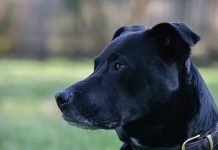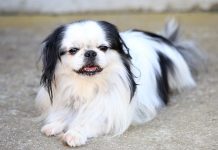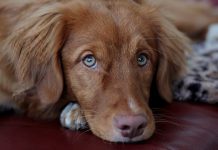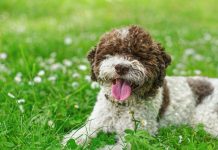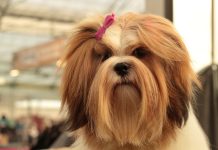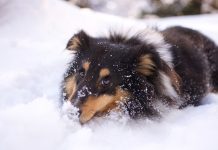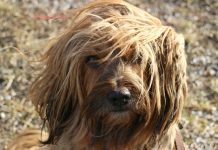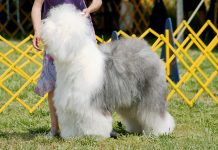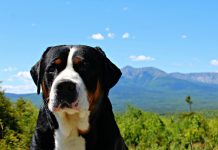History and Origins of the Brussels Griffon Breed

The Brussels Griffon is a small toy breed known for its distinctive appearance and charming personality. Here’s a brief overview of the history and origins of the Brussels Griffon:
- Belgian Origins: The Brussels Griffon, also known as Griffon Bruxellois, hails from Belgium, particularly Brussels, where it was developed as a companion dog.
- Crossbreeding: The breed’s origins can be traced back to the 19th century when it was developed by crossing various small dog breeds, including the Affenpinscher and the Belgian street dog known as “Smousje.”
- Ratting Dogs: Initially bred as ratters to help control vermin in stables and homes, the Brussels Griffon eventually transitioned into a beloved companion and lapdog among the Belgian nobility and affluent families.
- Breed Standard: The Brussels Griffon was recognized by the Royal Belgian Society for the Breeding of Purebred Dogs in the late 1800s, and the breed standard was established to preserve its unique characteristics.
Physical Characteristics and Appearance of Brussels Griffons
The Brussels Griffon is a small, sturdy, and charming dog with distinctive facial features and a lively disposition. Here are the physical characteristics and appearance of Brussels Griffons:
- Size: Brussels Griffons are small dogs, typically weighing between 8 to 12 pounds (3.6 to 5.4 kg) and standing around 7 to 10 inches (18 to 25 cm) tall at the shoulder.
- Body: They have a compact and well-balanced body with a square proportion. Despite their small size, Brussels Griffons are sturdy and muscular.
- Head: The most striking feature of Brussels Griffons is their expressive and almost human-like face. They have a large, domed head with a short, broad muzzle.
- Eyes: Brussels Griffons have large, dark, and widely set eyes that convey intelligence and curiosity. The eyes are prominent and give the breed its endearing expression.
- Ears: The ears of Brussels Griffons are usually cropped into a neat, erect shape, enhancing their alert and perky appearance.
- Coat: Brussels Griffons have a distinctive wiry or smooth coat that comes in various colors, including red, black, black and tan, or belge (a mix of red and black hairs).
- Tail: The tail of a Brussels Griffon is usually docked to a short length, although natural tails are becoming more common in countries where docking is prohibited.
- Expression: Brussels Griffons are known for their expressive faces, characterized by a prominent chin, undershot bite, and whiskered cheeks that resemble a human-like expression.
- Overall Appearance: Despite their small size, Brussels Griffons have a confident and self-assured demeanor. They are lively, affectionate, and make excellent companions for families and individuals alike.
The Brussels Griffon’s unique appearance and charming personality have made it a popular choice for dog lovers seeking a devoted and entertaining companion. With their distinctive facial features and lively disposition, Brussels Griffons capture the hearts of those who appreciate small dogs with big personalities.
Temperament and Personality Traits
- Affectionate: Brussels Griffons are loving and devoted companions who thrive on human interaction. They form strong bonds with their families and enjoy being close to their owners.
- Alert and Curious: Despite their small size, Brussels Griffons are alert and curious dogs. They are always aware of their surroundings and may act as excellent watchdogs, alerting their owners to any unusual activity.
- Playful: Brussels Griffons have a playful and mischievous side. They enjoy interactive games and toys, and they have a sense of humor that can entertain their owners.
- Intelligent: These dogs are intelligent and quick learners. They respond well to positive reinforcement-based training methods and enjoy mental stimulation.
- Confident: Brussels Griffons are confident dogs with a big personality. They may exhibit a fearless attitude, especially when meeting new people or exploring new environments.
- Good with Families: Brussels Griffons are generally good with children and can be affectionate companions for families. However, they may prefer gentle play and supervision around younger children due to their small size.
- Loyal: This breed forms strong bonds with their family members and is known for its loyalty. They prefer to be near their owners and may follow them around the house.
- Adaptable: Brussels Griffons can adapt well to various living situations, including apartments and homes with yards. They are versatile companions and can thrive in urban or suburban environments.
Training and Socialization Needs
- Early Socialization: Like all dogs, Brussels Griffons benefit from early socialization to help them become well-rounded and confident adults. Expose them to various people, pets, and environments from a young age.
- Positive Reinforcement: Use positive reinforcement techniques such as treats, praise, and rewards to train your Brussels Griffon. They respond well to gentle and consistent training methods.
- Basic Obedience: Teach basic obedience commands such as sit, stay, come, and leash walking. Brussels Griffons are eager to please and enjoy learning new skills.
- Patience and Consistency: Be patient and consistent in your training efforts. Brussels Griffons can be sensitive to harsh corrections, so use gentle guidance and positive reinforcement.
- Exercise Needs: Despite their small size, Brussels Griffons need regular exercise to stay healthy and happy. Daily walks, playtime, and interactive games can help meet their exercise needs.
- Attention and Affection: Provide plenty of attention and affection to your Brussels Griffon. They thrive on companionship and enjoy being part of the family.
By understanding the temperament and training needs of Brussels Griffons, you can create a positive and enriching environment for your beloved companion. With proper socialization, training, and care, Brussels Griffons can make wonderful companions for individuals and families alike.
Health Considerations and Common Issues in Brussels Griffons
Brussels Griffons are generally healthy dogs, but like all breeds, they may be prone to certain health conditions. Being aware of these potential issues can help you monitor your Brussels Griffon’s health and well-being. Common health considerations for Brussels Griffons include:
- Brachycephalic Syndrome: Brussels Griffons have a short muzzle and flat face, which can lead to breathing difficulties and respiratory issues, particularly in hot or humid weather.
- Patellar Luxation: This is a condition where the kneecap (patella) can dislocate from its normal position, causing lameness or discomfort. It’s common in small breeds like Brussels Griffons.
- Eye Problems: Brussels Griffons are susceptible to eye issues such as progressive retinal atrophy (PRA), cataracts, and corneal ulcers. Regular eye exams are important for early detection and treatment.
- Hip Dysplasia: Although less common in Brussels Griffons compared to larger breeds, hip dysplasia can still occur. It’s a genetic condition where the hip joint doesn’t develop properly, leading to arthritis and mobility issues.
- Hypothyroidism: Some Brussels Griffons may develop hypothyroidism, a condition where the thyroid gland doesn’t produce enough hormones. Symptoms include weight gain, lethargy, and skin problems.
- Dental Issues: Small breeds like Brussels Griffons are prone to dental problems such as tooth decay, gum disease, and retained baby teeth. Regular dental care, including brushing, can help maintain oral health.
- Allergies: Brussels Griffons can be sensitive to environmental allergens or certain foods, leading to skin irritation, itching, and ear infections. Identifying and managing allergies can improve your dog’s comfort.
- Legg-Calvé-Perthes Disease: This is a condition where the blood supply to the femur (thigh bone) is disrupted, leading to degeneration of the hip joint. It can cause lameness and pain in affected dogs.
Living with a Brussels Griffon: Suitable Environments and Lifestyle Considerations
Brussels Griffons are well-suited to various living environments, but they thrive best as indoor companions due to their small size and sensitivity to extreme temperatures. Here are some considerations for living with a Brussels Griffon:
- Indoor Living: Brussels Griffons are indoor dogs and prefer to be close to their families. They are well-suited to apartment living but should have access to outdoor walks and playtime.
- Climate Sensitivity: Due to their brachycephalic (short-faced) nature, Brussels Griffons can be sensitive to heat and humidity. Avoid strenuous exercise in hot weather and provide a cool, shaded area indoors.
- Regular Exercise: Despite their small size, Brussels Griffons benefit from daily exercise to maintain a healthy weight and mental stimulation. Short walks, play sessions, and interactive toys are ideal.
- Social Interaction: Brussels Griffons are social dogs and enjoy being part of the family. They thrive on companionship and may experience separation anxiety if left alone for long periods.
- Grooming Needs: Brussels Griffons have a wiry or smooth coat that requires regular brushing to prevent matting and tangles. They may also need occasional grooming and nail trimming.
- Health Monitoring: Regular veterinary check-ups are essential to monitor your Brussels Griffon’s health and address any potential issues early. Stay informed about breed-specific health concerns and discuss preventive care with your vet.
- Safety Precautions: Due to their small size, Brussels Griffons should be supervised around larger dogs and children to prevent accidental injuries. Use harnesses or secure leashes during walks.
By providing a loving and attentive environment, along with proper healthcare and preventive measures, you can ensure a happy and fulfilling life for your Brussels Griffon companion. Regular veterinary care and attention to their specific needs will help maintain their health and well-being throughout their life.
Brussels Griffon Variations and Breeding Practices

The Brussels Griffon breed is relatively standardized in terms of appearance and characteristics, but variations can still occur based on breeding practices and individual genetic traits. Here are some considerations regarding variations and breeding practices for Brussels Griffons:
Variations in Brussels Griffon Breeding
- Coat Type:
- Brussels Griffons come in two coat types: smooth (short and glossy) and rough (dense, wiry, and slightly longer). Both coat types are acceptable according to breed standards.
- Breeding practices can influence the coat type of Brussels Griffon puppies, with breeders selecting for specific coat textures based on desired traits.
- Color:
- Brussels Griffons exhibit a range of colors, including red, black, black and tan, belge (a mix of red and black), and various shades of these colors.
- Breeding practices may focus on producing puppies with certain color patterns or combinations, although breed standards allow for various color variations.
- Size and Structure:
- Brussels Griffons have a compact and square-built body, but variations in size and structure can occur within the breed.
- Responsible breeders aim to maintain breed standards for size, proportion, and overall structure when selecting breeding pairs.
Breeding Practices for Brussels Griffons
- Health Screening:
- Reputable breeders prioritize the health and well-being of Brussels Griffons by conducting health screenings for genetic disorders, such as patellar luxation, eye problems, and respiratory issues.
- Health screening helps identify potential health risks in breeding dogs and ensures that only healthy individuals are used for breeding.
- Conformation and Temperament:
- Breeders adhere to breed standards set by kennel clubs and breed organizations to preserve the Brussels Griffon’s distinctive appearance and temperament.
- Dogs selected for breeding should exhibit desirable traits such as a compact body, expressive face, confident demeanor, and affectionate personality.
- Genetic Diversity:
- Responsible breeders prioritize genetic diversity within the Brussels Griffon population to minimize the risk of inherited health issues and preserve the breed’s overall genetic health.
- Avoiding close inbreeding (breeding closely related dogs) helps maintain genetic diversity and reduces the incidence of inherited disorders.
- Ethical Practices:
- Ethical breeders prioritize the welfare of their dogs and adhere to responsible breeding practices, including proper socialization, early training, and appropriate care for breeding dogs and puppies.
- They provide lifetime support to puppy buyers and prioritize finding suitable homes for their puppies based on individual needs and preferences.
- Breed Preservation:
- Breeders play a crucial role in preserving the Brussels Griffon breed by maintaining breed standards, promoting responsible ownership, and educating the public about the breed’s unique characteristics.
- Collaboration with veterinary professionals and breed experts helps ensure the long-term health and vitality of Brussels Griffons.
By selecting reputable breeders who prioritize health, temperament, and breed standards, prospective Brussels Griffon owners can acquire healthy and well-adjusted puppies that embody the breed’s charming personality and distinctive traits. Responsible breeding practices contribute to the overall well-being and preservation of this beloved breed.
50 Best Names with Meanings for Brussels Griffon
Naming your Brussels Griffon can be a fun and meaningful process that reflects their unique personality and charm. Here are 50 best names with meanings that could suit your Brussels Griffon:
- Belle – Beautiful and charming.
- Oscar – A brave and distinguished name.
- Pixie – Playful and mischievous.
- Gizmo – Refers to a small, clever gadget.
- Felix – Happy and fortunate.
- Ruby – Precious and vibrant, like a gem.
- Winston – A noble and dignified name.
- Minnie – Small and adorable.
- Buddy – A companion and friend.
- Lola – Strong-willed and determined.
- Teddy – Soft and cuddly, like a teddy bear.
- Stella – Star-like and radiant.
- Charlie – Free-spirited and cheerful.
- Penny – Lucky and valuable.
- Archie – Bold and courageous.
- Coco – Stylish and sophisticated.
- Milo – Gentle and mild-mannered.
- Zoe – Life and vitality.
- Louie – Renowned warrior.
- Mimi – Affectionate and loving.
- Gus – Majestic and dignified.
- Daisy – Innocent and pure.
- Max – Greatest or largest.
- Poppy – Bright and cheerful flower.
- Winnie – Gentle and fair.
- Mochi – Sweet and chewy treat.
- Oliver – Peaceful and prosperous.
- Lucy – Light and graceful.
- Pippin – Small and spirited.
- Rosie – Rose-like and beautiful.
- Baxter – Baker or skilled worker.
- Hazel – Wise and insightful.
- Peanut – Tiny and adorable.
- Leo – Brave and bold lion.
- Millie – Gentle strength.
- Dexter – Skillful and clever.
- Olive – Peaceful and calm.
- Rocky – Strong and resilient.
- Nala – Successful and beloved.
- Remy – Oarsman or rower.
- Willow – Graceful and flexible.
- Cleo – Prideful and glorious.
- Finn – Fair or white.
- Lulu – Precious and unique.
- Toby – God is good.
- Sasha – Defender of mankind.
- Piper – Flute player.
- Rocco – Rest.
- Mabel – Lovable and dear.
- Benny – Blessed.
Choose a name that resonates with your Brussels Griffon’s personality, appearance, and the special bond you share. Whether you prefer a classic, quirky, or meaningful name, these options are sure to inspire you in naming your beloved Brussels Griffon companion.

In conclusion, this comprehensive guide has provided a detailed overview of Brussels Griffon dogs, highlighting their unique breed characteristics and essential care considerations. Throughout our exploration, we’ve delved into the history, distinctive traits, and important aspects of owning a Brussels Griffon. Known for their affectionate nature, intelligence, and charming personality, Brussels Griffons make wonderful companions for individuals and families seeking a loving and devoted pet. They thrive in close relationships with their owners and enjoy spending time indoors. As you embark on your journey with a Brussels Griffon, may you appreciate their delightful qualities and form a strong bond with this endearing breed, creating lasting companionship and joy together.






